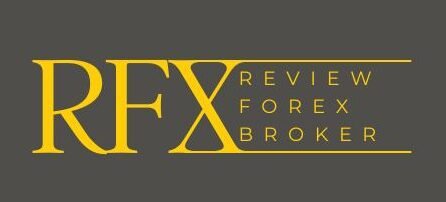Choosing a forex broker is one of the most critical decisions for any trader, whether you’re just starting out or have years of experience. The right broker can offer you competitive trading conditions, a seamless platform, and, most importantly, a secure and transparent trading environment. But with hundreds of brokers to choose from, making the right decision can feel overwhelming. This is where forex broker reviews come in handy.
Forex broker reviews provide traders with valuable insights into the services, features, and reliability of various brokers. However, knowing how to interpret and use these reviews effectively is crucial to making informed choices. In this blog, we’ll explore the key aspects of using forex broker reviews to help you make the best decision for your trading journey.
Why Forex Broker Reviews Matter
Forex broker reviews offer firsthand experiences and expert analysis of various brokers’ offerings. These reviews can cover essential aspects such as:
- Regulation and Security: Is the broker regulated by reputable authorities?
- Trading Conditions: What spreads, leverage, and commissions does the broker offer?
- Platform Performance: How well does the broker’s trading platform function?
- Customer Support: Is customer service responsive and helpful?
- Execution Speed: How fast are trades executed, and what is the rate of slippage?
- Deposit and Withdrawal Options: Are there convenient and secure payment methods?
By understanding these elements through broker reviews, you can filter through the noise and choose a broker that best fits your trading style and goals.
How to Evaluate Forex Broker Reviews
When reading forex broker reviews, it’s essential to approach them with a critical mindset. Here are some tips on how to interpret these reviews effectively:
1. Prioritize Independent Reviews
Not all reviews are created equal. Some reviews on broker websites or third-party platforms may be biased, paid, or written to sway traders in a particular direction. To make the best decision, prioritize independent, unbiased reviews from trustworthy sources.
- Example: Websites like Trustpilot or forums such as Forex Peace Army offer genuine user feedback, which can be more reliable than reviews published directly on a broker’s website.
2. Focus on Recent Reviews
The forex market is constantly evolving, and a broker that had a stellar reputation a few years ago may not offer the same quality of service today. Focus on recent reviews to get the most up-to-date information about a broker’s performance, trading conditions, and customer service.
- Tip: Look for reviews from the past six to twelve months to ensure you’re considering current experiences.
3. Look for Consistency in Feedback
While every broker will have a mix of positive and negative reviews, consistency is key. If multiple reviewers are praising or criticizing the same aspects of a broker, it’s likely a reliable reflection of their service.
- Example: If you notice several reviews mentioning slow execution speed, recurring withdrawal issues, or poor customer support, these could be red flags.
4. Consider the Reviewer’s Experience Level
Traders come from diverse backgrounds with varying levels of expertise, and their expectations can differ significantly. When reading reviews, take note of the reviewer’s experience level. A beginner trader may focus on aspects like educational resources and ease of use, while a more experienced trader may focus on execution speed and advanced charting tools.
- Tip: Look for reviews from traders with a similar trading style and experience level to yours for more relevant insights.
5. Check for Regulatory Information
One of the most critical aspects of choosing a broker is ensuring they are regulated by a reputable authority. Forex broker reviews should always highlight the broker’s regulatory status. A regulated broker is subject to strict guidelines that protect traders from fraud and ensure fair trading practices.
- Example: Look for brokers regulated by authorities such as the FCA (UK), ASIC (Australia), CySEC (Cyprus), or other well-established regulatory bodies.
6. Understand the Context of Complaints
It’s common to find some negative reviews for even the most reputable brokers. However, not all complaints are valid or reflect a broker’s overall quality. Pay attention to the context of complaints—are they legitimate concerns, or are they the result of user error or unrealistic expectations?
- Example: Some traders may leave negative reviews because of losing trades, even if those losses were due to market conditions rather than broker misconduct.
Key Factors to Look for in Forex Broker Reviews
When reading reviews, there are several key factors you should look out for to help you make an informed decision:
1. Regulation and Licensing
The first thing to look for in a review is whether the broker is regulated by a recognized authority. A regulated broker must adhere to strict rules that protect client funds, ensure transparency, and offer a fair trading environment.
- Red Flag: Be wary of brokers that are unregulated or regulated in jurisdictions with lenient rules, as this increases the risk of fraud or financial mismanagement.
2. Trading Costs
Forex broker reviews often provide information on trading costs, such as spreads, commissions, and swap rates. Low spreads and competitive commissions can reduce your overall trading costs and boost profitability, especially for frequent traders.
- Tip: Look for brokers with tight spreads for the currency pairs you trade most often.
3. Execution Speed
Execution speed is particularly important for traders using scalping or high-frequency trading strategies. Reviews often highlight whether brokers offer fast and reliable trade execution with minimal slippage.
- Tip: If execution speed is a priority for you, focus on reviews from scalpers or day traders who rely on fast trade execution.
4. Withdrawal and Deposit Process
A common area of concern in broker reviews is the deposit and withdrawal process. Look for feedback on how quickly and easily traders can access their funds and whether there are any hidden fees or delays.
- Red Flag: Multiple reviews complaining about slow or denied withdrawals should raise concerns about the broker’s trustworthiness.
5. Customer Support
Good customer support is essential, especially when you encounter technical issues or need help with your account. Reviews often shed light on the quality and availability of customer support, including response times and helpfulness.
- Tip: Look for brokers with 24/7 customer support and multiple contact channels, such as live chat, phone, and email.
How to Use Reviews in Combination with Research
While reviews are a great starting point, they should be used in combination with other research to make a fully informed choice. Here are some additional steps you can take:
- Visit the Broker’s Website: Read through the broker’s terms and conditions, regulatory status, and product offerings.
- Use a Demo Account: Most brokers offer demo accounts where you can test their platform and execution speed without risking real money.
- Compare Multiple Brokers: Use reviews to create a shortlist of brokers, then compare them side by side to see which one best meets your needs.
Conclusion
Forex broker reviews are an invaluable tool for making informed decisions in your trading journey. By prioritizing independent and recent reviews, focusing on key factors such as regulation, trading conditions, and customer support, and combining them with your own research, you can confidently choose a broker that aligns with your trading goals. Remember, the right broker can significantly impact your trading success, so take the time to read reviews carefully and consider all aspects before making a final decision.

